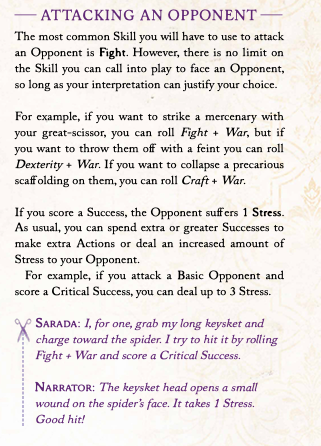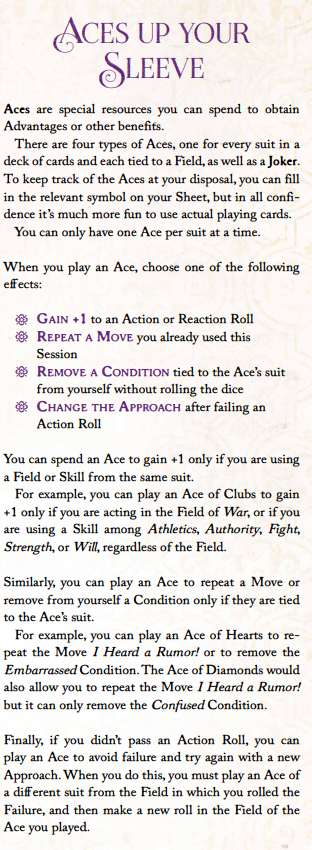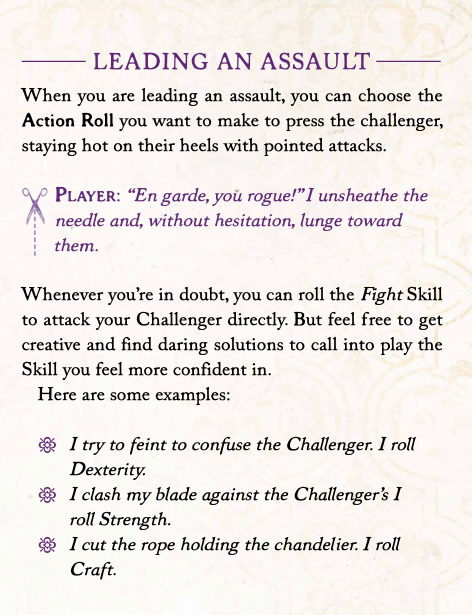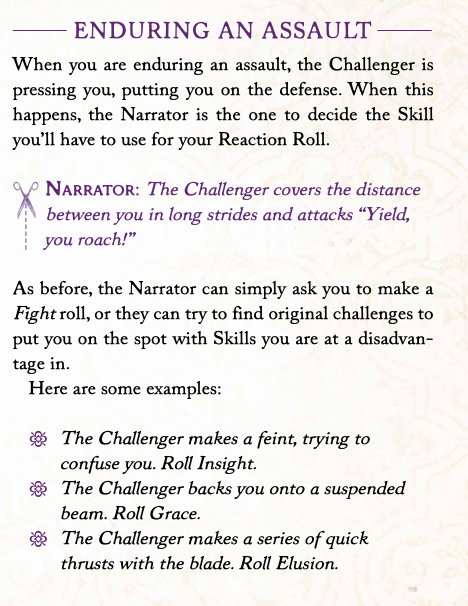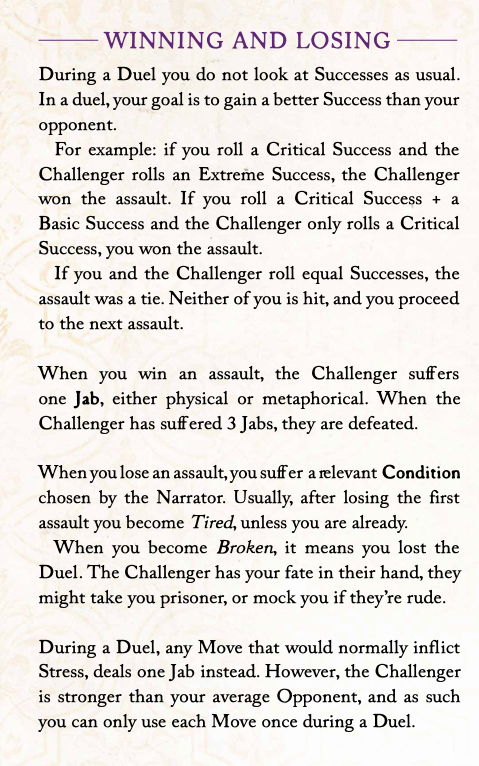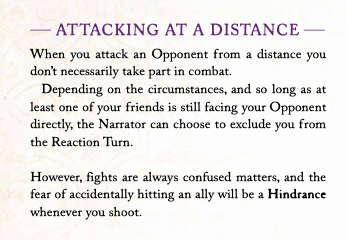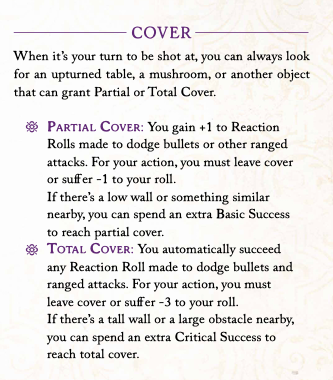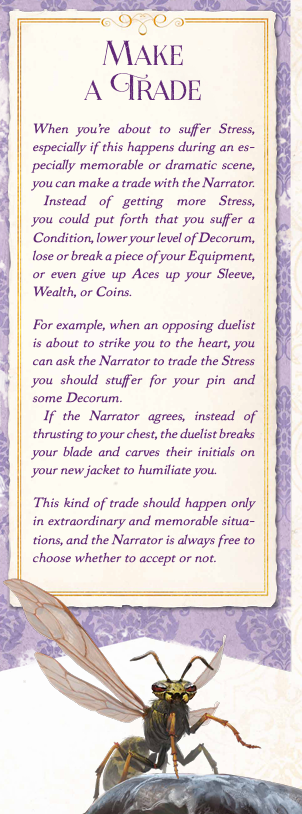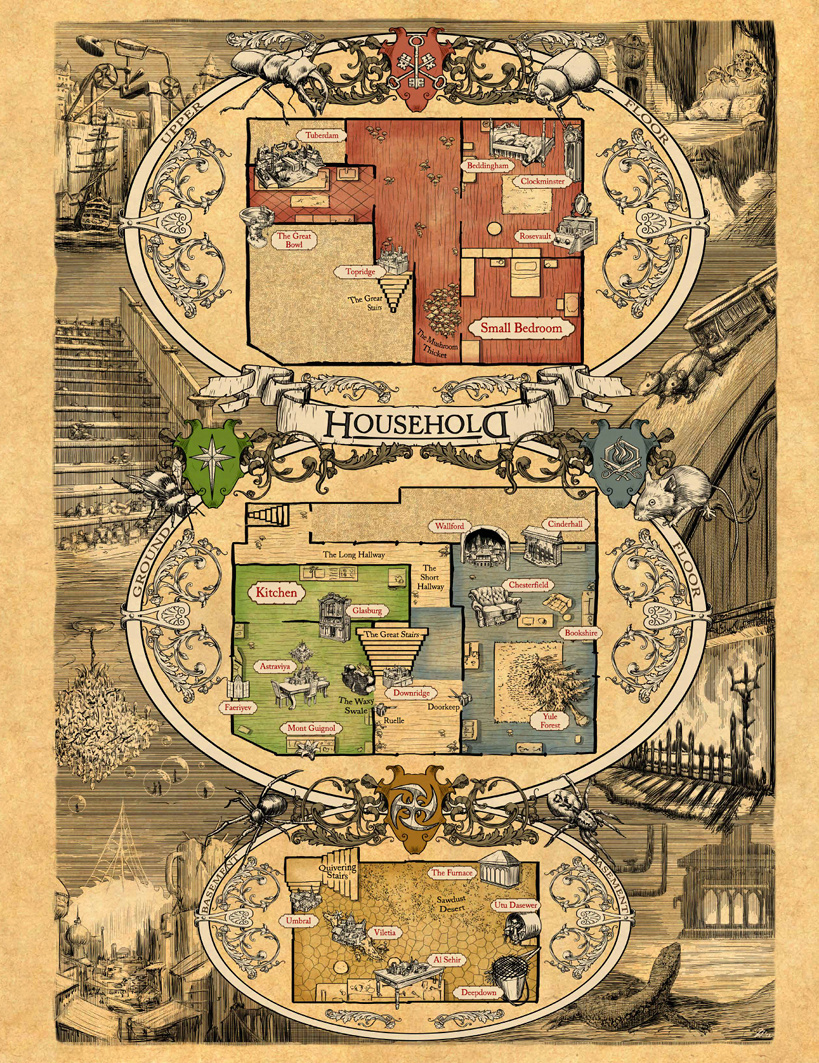
I own a lot of systems. The above isn't even a comprehensive list, as I own a myriad of physical-only products that I never bothered to find PDFs for. I often stare at my library shelves and go 'Fading Memory, when are you going to have the time to play all of these? How on earth are you going to make the time to do all of this?'
And, well, I'm pretty sure I never will. Oh well. That doesn't mean I'm not going to try. I've got a lot of energy these days. A lot. I'm positively overflowing with Guild Refreshes and jittery fingers and a desire to smash buttons and make stories.
I'm going to highlight a few of these systems that I'm personally quite interested in, despite a lack of overt familiarity with them, and willing to attempt to put things together with a crew of folks who may be even less familiar than I am with these systems. Below you will find the systems I am most interested in, for various reasons, in no particular order.
Dungeons and Dragons 4th EditionI do not know if this game will mesh well with the Forum style. I am willing to smash my head against it anyway. I've never played nor run it before. I've given it cursory readthroughs over the last few years just out of sheer curiosity. I do not consider myself 'knowledgeable' nor 'proficient' with the system, but am keen on trying it out.
It's chock full of hard grid definitions and game-ist terminology that doesn't quite translate into a theatre of the mind comprehension, but I'm willing to flub a lot to make scenes work and keep the fantasy moving. This system is geared for Big Damn Heroes, Big Damn Fights, and being the 'Heroic Adventurer'.
This is D20 based, with multiple layers of additive modifiers and situational bonuses/maluses, and a potential for tracking many turn-based effects and 'over time' triggers. Potentially quite clunky for folks who have only ever played 5e.
HouseholdThis system is simple. The setting is charming. I liken it to 'The Secret World of Arriety' by Studio Ghibli; it's about Little People in a Big House. It fits snugly into a later renaissance aesthetic, with faeries living in the chandelier of the kitchen and Boggarts claiming the hearth and fireplace as home, etcetera and so forth. Keyskets, cogpeshes, half-scissor blades, bumble-bee mounts, vicious hordes of rats, spider cultists, high society intrigues, and grand adventures through the garden are all potential angles in this setting and world. The Master has been away for too long, and now the Littles must keep order in the Home.
I believe that is sufficient to paint a broad picture of what Household entails. The mechanics operate off of a 'roll a pool of D6's, look for multiples-of-a-kind. Potentially have rerolls' system. It's just that simple. A very narrative first system, focusing on the roleplay elements of the Period Drama and being very light on mechanics in my humble opinion. This is the one if folks are of a like mind to myself where the system may end up being secondary to the actual gameplay/roleplay experience of the world itself.
While I've never run this setting or system explicitly, I've run Two Little Mice's other system 'Outgunned' and it uses a nearly identical core mechanic.
Vampire the Masquerade 5eIt's VTM. I think most people broadly have an idea what this is in today's roleplaying game climate. I've dabbled in the myriad video games a smidge, and consumed a few podcasts and youtube series of this one, but have never played it or run it personally. This means that if people are interested in this one, I will make mistakes and break canon and ruin lore or any other horrible things I could probably mess up- but hey, I'll be honest, I don't care if you guys don't.
The World of Darkness is not for the faint of heart. Set 'tonight', 'this year', 'our world', 'right now', the World of Darkness is a dark and macabre reflection of our own city streets and world situations. Vampires roam the night in secret, concealed by a rigid Masquerade upheld by old blood and tyrannical hierarchy. Other factions vie for control of the night, and mortal kine are pawns in their games. This is a game about wrestling with humanity, a lack thereof, and ambition. Vampires are infinitely more powerful than individual mortals, but are outnumbered by their livestock millionfold and must be careful in their hunting and plotting lest the sheep rise against the shepherds.
Bad things happen in the world of darkness. It's a game for mature audiences to put it as clearly as possible; that's not to say that a table cannot be made comfortable for all, but it is the nature of this game that you are playing a monster who may or may not realize it yet as they choose whether or not their humanity is really all that important in the Machiavellian schemes of the night.
Just the way I've described this will probably clue veteran players of the setting in to the fact I really am new to it, but I have an interest and a general understanding of the vibe. Mechanically it uses D10's in pools, trying to roll 6+'s with some nuances to this. Activating vampiric powers can potentially lead to greater Hunger, which in turn can lead to messy situations as it affects your dice pools. 'Clans' represent groupings of shared banes and benefits, functionally mirroring 'classes'+'races' of other systems into one neat bundle. As an example, the Nosferatu; their clan bane is an apparent and unmistakable hideousness, whilst they get the benefits of physical prowess, stealth, and animal familiarity.
I don't anticipate a strong response to this, but it's one I'm willing to run and am interested in myself.
A Song of Ice and FireIn my opinion, this game system is a bit of a mess. I've played two games in it, run 0, never fully read the books, only watched the show once, but think that there's a fascinating potential to the system and setting for a game that is built on the idea of 'politics and warfare go hand in hand' rather than having one as an afterthought. I could not explain the system off of memory save that it is about amassing pools of D6's which are occasionally modified with a +Number, or by gaining bonus dice which only replace lowest numbers rolled, and trying to beat target numbers. The greater the extent you beat the target numbers, the greater the degree of success.
I don't have much to say about this one other than 'If you like the idea of politicking and lethal combat and dealing with the world of Game of Thrones, this game is quite literally built for that'. The House generation aspect is prime, in my opinion, and greatly solidifies the party's cohesion as a unit in the employ or service of a particular house.
D&D 5eHey, people like it. It's easy. It runs clean. It's easy to use. I know it like the back of my hand. I've made mistakes in running it in the past, but I've been running it for a long time. Last time I tried to run it, I ended up dumping nearly 70 pages of homebrewed setting, races, lore, deities, songs, naming conventions, legends, languages, and locations on my players.
Y'all know who you are, I'm sorry for that.This time I'm keeping it simple. If folks want to just play some more 5e, I'll be going back to basics and...well...not doing all of that again. As a worst case scenario, if people want something of substance beyond 'adventuring fantasy game', I alternatively do have Strixhaven and am willing to run it. I've never run a premade module or adventure before, and this thing is a little silly in its layout, but hey- it's a forum, it's through text, what could go wrong if people wanted that route?
I also have various clones/kickstarters/third party productions for 5e, ranging from Bloodpunk (a vampire-centric, blood-currency, techno-punk, setting book) to Carbon 2185 (a cyberpunk flavored futuristic variant a-la Cyberpunk and Shadowrun) and Genefunk (another futuristic setting defined by genetic modification and insane mutations on genome, I've touched this very little) and Steinhardt's Guide (Bloodborne, 5e, 3rd party.). If people had a strong interest in 'the same, but different' I could elaborate on these as well.
If I had a gun to my head, I'd pick 4e as the one I'm most interested in personally, but I'm also looking to explore these other systems with people and not just my own interest. As such, I'm happy with any of the above if interest is present.
Honorable mentions for my willingness to run are Twilight 2k (the modern variant by Free League, not the older editions) and Vaesen (the first Free League game I ever purchased, but never played). T2K is about the world in ruin after world war 3 and the soldiers trying to pick up the pieces as infrastructure, command, and the world itself have collapsed after nuclear war. Old orders still stand, but survival is uncertain and the world is in chaos.
This system is complex for what it is, and may be difficult to represent on a forum. Vaesen is about a society of people who were born on Thursdays. To elaborate, they can see supernatural creatures and it's a mystery-intrigue system about the world changing during industrialization in Scandinavia and the old mysteries fighting back in a changing world. Strange things happen that are inexplicable, but you can see the truth of things where others just see chaos.




